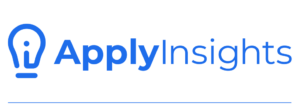Over the first half of 2024, hundreds of thousands of students worldwide used the ApplyBoard platform to search for study programs in Australia, Canada, Ireland, the United Kingdom, and the United States. For many of these students, searching on our platform is one of the first steps in their study abroad journey. Data about these students’ search patterns allows us to gain insights into what future students want to study, and how program preferences are changing among major student populations.
Shifting student preferences are being driven by government policies that have altered the international education landscape in 2024. These new policies have affected student outlooks on everything from viable career paths to attractive study destinations, influencing student interest in different fields of study.
Which fields of study have seen the biggest shifts, and what can ApplyBoard platform data tell us about what’s to come in the rest of 2024? Below, we’ll compare how search volumes for specific fields stack up so far in 2024.1 We’ll also take a closer look at which fields are most popular with some of the world’s largest student populations. Finally, we’ll dig into search levels for specific programs within science and engineering fields, as STEM2 programs remain a top student priority.
Key Insights at a Glance
- ApplyBoard platform search data shows an increased global interest in health sciences. At a national level, nearly one in five Nigerian students’ searches were related to health studies in the first seven months of 2024.
- Worldwide searches for business and management fields slowed through 2024, with search activity slowing at a higher rate in emerging student markets. Related searches for business programs dropped by five percentage points among Ghanaian students and by six percentage points among Filipino students.
- More search queries across science and engineering fields means international students are less focused on computer science and IT programs. Optometry, radiography, and industrial engineering are some of the programs capturing a larger share of program-specific queries in STEM fields.
Global Interest in Health and Science Programs Rising
The most recent cohort of students has been shaped by social distancing and remote learning, whether in secondary schools or undergraduate programs. This altered learning environment might play a role in why fields with strong elements of both human connection and high job demand, whether health sciences3 or social services,4 are seeing small but steady yearly increases in search volume.
Yet the most popular field of study international students searched for so far in 2024 is business, management, and economics.5 This search category had the most queries on the ApplyBoard platform in 2022, a trend which continued through 2023 and 2024. In fact, in 2023, just over one in three searches involved the business, management, and economics field. However, our 2024 search data shows students’ interests are diversifying:6
In the first seven months of 2024, 15% of all searches on the ApplyBoard platform were for programs within the health sciences field. This represents a three percentage point rise over its share of searches in both 2022 and 2023, aligning with the rising interest in health sciences we found in our most recent ApplyBoard Student Pulse survey. This change is likely bolstered by strong interest from specific student populations. For example, 19% of searches by Nigerian students were for health sciences so far in 2024, up from 15% in 2023.
Globally, there were also slightly more searches for general sciences. Related search queries increased to 17% of all traffic, versus 16% in 2022 and 2023. Likewise, program searches for studies in the social services field were also on an upswing. Globally, this field captured 8% of searches in 2024, versus 6% of searches in full-year 2022.
Student Interest in the Sciences Diversifies Beyond Computer Science
Most shifts in search volume in 2024 were moderate, changing by five percentage points or less compared to 2023. However, in the sciences field of study, the volume distribution of computer science programs dropped notably:
Compared to 2023 data, worldwide searches for computer science dropped by 11 percentage points in 2024. When comparing monthly data for January through July in both 2023 and 2024, the actual number of searches for computer science increased year-over-year by 24%.
However, these searches account for a smaller percentage of all science-related searches.7 That’s because the overall number of science searches in the first seven months of 2024 was already 44% higher than full-year 2023. No one program has captured all of this diverted traffic, but several have made small gains, with psychology, general sciences, and optometry (each up two percentage points year-over-year) growing the most.
This dip may even out through the rest of 2024, especially as 2023 monthly data shows more searches for computer science programs in the fall and winter compared to spring and summer. It’s a shift our team will continue to track to see if students’ interests are changing, or if it’s a possible response to computer science programs becoming more competitive.
Software, Computer, and IT Programs Capturing a Smaller Share of Engineering Searches
Computer-related programs aren’t just losing steam among science searches. They’re also less prevalent when looking at the search trends of future engineers. When comparing engineering-specific search data for 2023 and 2024, technology, software, computer, and IT programs captured 23 percentage points less of all engineering-related searches in 2024:
As in the sciences, student interest in engineering has branched out from computer-related programs into nearly every other discipline. Mechanical engineering and civil engineering were the only other fields that experienced a drop in search traffic during the first seven months of 2024 versus full-year 2023, collectively dropping by one percentage point.
This drop in search volume share for technology, software, computer, and IT programs isn’t a case of students no longer being interested in these programs. In fact, the number of searches for these programs are on pace to reach a new full-year high. Instead, it’s that several other programs in this field have seen increased interest, leading to an evening out in search volume share.
Some engineering programs that have seen a higher share of the overall search volume in 2024 include radiography (increased by four percentage points), industrial engineering (up three percentage points), material engineering (up three percentage points), and environmental engineering (up three percentage points).
Indian Student Interest Shifting Towards Health and Humanities
As the largest student population in the world, Indian students are often trendsetters and their search interests can help us see where the international education sector as a whole may be headed. In the first seven months of 2024, just under a third of searches by Indian searches were for business fields, similar to the global proportion:
However, engineering and technology historically accounted for a higher share of searches from Indian students (21% in 2022), while 2024 data shows only 17% of Indian students’ queries were for this field—capturing the same proportion of searches as general sciences. While there are likely many factors driving this downturn, our most recent ApplyBoard Student Pulse survey highlighted that increased employability and building a professional network were two of students’ top three reasons to go abroad. As high-profile reductions in workforces across the tech sector continue in 2024, prospective students may be adjusting their searches to fields more likely to have open job opportunities after graduation.
Nigerian Students Increasingly Drawn to Health Fields
Nigerian student interest in specific fields including business and engineering has remained fairly consistent over the past two and a half years, even as the popularity of studying abroad has climbed among Nigerian students:
Looking closer at search terms, the social services and arts fields each hovered around 10% of searches by Nigerian students between 2022 and 2024, with engineering and technology capturing 15% of these students’ searches since 2022. By contrast, sciences queries have declined from 19% in 2022 to 16% in 2024.
Meanwhile, we’ve seen a marked increase in Nigerian student interest in health programs. Health sciences increased to 19% of Nigerian searches in 2024—up four percentage points from the previous year—mirroring business searches’ drop from 34% to 30%. Nigerian students’ amplified interest in health programs may be a leading indicator of increased applications to health programs in 2024 and 2025. This would continue an ongoing trend in Canada, where the number of study permits issued to Nigerian students for health and general sciences programs increased 430% between 2019 and 2023.
Chinese Students’ Top Searches Include Business and Technology
Over the first seven months of 2024, the proportion of business, management, and economics searches increased to 27% of all searches from Chinese students, rising three percentage points over 2023. This differentiates them from other student populations, where the proportion of business-related searches remained steady or declined year-over-year:
The share of searches for engineering and technology fields among Chinese students decreased by seven percentage points YOY. But it’s still this population’s second most-common field of interest, capturing one in five searches. Health sciences, sciences, and social services searches each increased their share of searches in 2024, although sciences rose the most, claiming 17% of search traffic and rising three percentage points from 2023 levels.
Emerging Student Markets Searching for Health, Tech, and Business Studies
As student populations from Bangladesh, Ghana, Nepal, and the Philippines continue to drive diversity in destination markets, comparing their search patterns with some of the most established student populations can help predict future study abroad trends. For these emerging student populations, the most-searched field of study on the ApplyBoard platform in 2024 was business, management, and economics. Conversely, interest in health sciences was more polarized. Over one in five searches by students from Ghana or the Philippines was health-related, but this field featured in only 8% of searches by students from Bangladesh and 13% for students from Nepal:
For Nepalese and Bangladeshi students, the second most-searched field in Jan–Jul 2024 was engineering and technology, representing 22% of each population’s queries. This field performed well across all four emerging markets, ranking as the third most-searched field for Filipino students (16% of all searches) and tied for third (with sciences) among Ghanaian students (15%).
Sciences were also in demand for students from Bangladesh and Nepal, commanding 20% of all searches for both countries in early 2024. While our search data shows that arts programs are not in as high demand among these students, interest is strongest in Bangladesh and Ghana, with 10% and 11% of search volume for their respective populations.
ApplyBoard Can Help Your Institution Leverage Data for Strategic Student Recruitment
Search data is often a leading indicator of what future international students are looking for in their study journey. Leveraging this data enables sector stakeholders to better plan for tomorrow, ensuring they’re able to allocate their resources to best support incoming students. Which programs are they most interested in? Which destinations are top-of-mind? How do budget considerations factor in? Understanding the answers to these questions is key to creating a thoughtful, sustainable foundation for international student recruitment.
If you’re part of a team that’s interested in receiving specific insights tailored to your institution’s international recruitment goals, reach out to ApplyBoard’s ApplySolutions team. We’ll work with you to share current government data in approachable formats, as well as offer a closer look at which fields of study are trending. Plus, with ApplySolutions, you can benchmark your institution against others in the field and approach diversification opportunities with current, actionable data.
Subscribe to ApplyInsights
Sign up for the latest insights on international education.

About the ApplyInsights Team
FOOTNOTES:
1. All 2024 data is for the months of January to July, inclusive, unless otherwise noted.
2. STEM refers to the study of science, technology, engineering, and math.
3. Abridged for readability; this field encompasses health sciences, medicine, nursing, paramedic, and kinesiology studies.
4. Abridged for readability; this field includes law, politics, social studies, community services, and teaching.
5. All data is courtesy of ApplyBoard, unless otherwise noted.
6. In the past, ApplyBoard platform search data was generated based on button clicks on a page, while the new search data is generated by any changes made to the page’s filters (destination, field of study, etc.) As a result, the new search count, if tallied using the previous search data approach, would be significantly inflated compared to the original search count. To make the search counts more comparable, we changed our methodology as of August 2024 to use unique entries per user within each hour.
7. Note that because there are many program categories under each field of study category, the count of unique user searches for programs ends up much higher than the field of study category.



